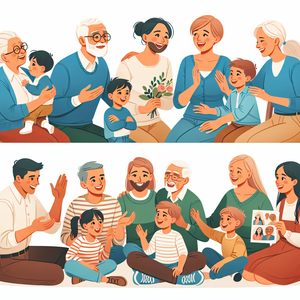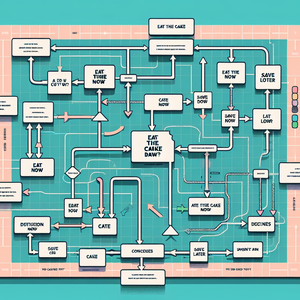The Evolution of Discord: From Gaming Hub to Community Powerhouse

Discord's initial focus on gaming provided a solid foundation for its growth. Gamers flocked to the platform for its low-latency voice chat and text channels, enabling seamless communication during gameplay. Features such as server roles and permissions allowed gamers to create organized and structured environments, enhancing their overall experience. However, as the platform matured, its flexible architecture attracted a wide range of users seeking spaces to connect over shared interests beyond gaming. One of the key factors driving this evolution was the introduction of customizable servers. Users can create their own servers tailored to specific themes or interests, allowing communities to flourish based on mutual passions. For example, artists have established servers to showcase their work and exchange feedback, while educators have found a new platform for engaging students and facilitating remote learning experiences. The “Artist’s Lounge” server and “Study Together” communities exemplify how diverse groups have tailored Discord to fit their unique needs. This adaptability has enabled Discord to become a versatile tool for community building across various domains.
Innovative Features and User Engagement
Discord has continually rolled out features that enhance user engagement and foster community interaction. The introduction of video and screen sharing has empowered users to host virtual events, workshops, and live streams, creating an immersive experience that goes beyond text and voice. Communities can now hold art classes, book clubs, and even live gaming tournaments, all within the same platform. For instance, the “Game Development” server often holds live coding sessions where users collaborate in real-time, showcasing the platform's ability to facilitate learning and creativity. Additionally, the integration of bots has further enriched the user experience. Bots can automate tasks, moderate discussions, and facilitate games, allowing server owners to focus on community management while providing engaging content for members. Popular bots like MEE6 and Dyno help manage server activities and automate moderation, leading to the development of unique server cultures. This technological integration has helped maintain vibrant and active communities, where members can enjoy a seamless experience while engaging in discussions.
The Implications for Online Interaction
The transformation of Discord into a community powerhouse carries significant implications for online interaction. It demonstrates a shift away from traditional social media platforms, which often prioritize individual engagement over community building. Discord encourages deeper connections through shared experiences, fostering a sense of belonging among users. This aspect has been particularly crucial during the COVID-19 pandemic, as many individuals turned to online communities for support and companionship during periods of isolation. The rise of mental health support groups within Discord serves as a testament to the platform's capacity to provide solace and understanding in challenging times. Moreover, the rise of Discord emphasizes the importance of user agency in online spaces. Communities are largely self-governed, allowing users to establish their own rules and norms. This participatory approach can lead to more inclusive and diverse environments, where members feel empowered to contribute and shape their experiences. The ability for users to create specialized channels for discussions about mental health, social justice, or even niche hobbies fosters a more collaborative and supportive atmosphere compared to conventional social media platforms.
The evolution of Discord from a gaming hub to a multifaceted community powerhouse exemplifies the dynamic nature of online communication. By embracing adaptability and innovation, Discord has positioned itself as a vital tool for fostering connections among diverse groups. As users continue to find new ways to engage and build relationships, the platform’s impact on online interaction will only grow. In a world that increasingly values community and collaboration, Discord stands as a testament to the power of digital spaces in bringing people together, transcending geographical barriers, and creating meaningful connections. The journey of Discord illustrates not just a shift in functionality, but a broader cultural shift in how we perceive and utilize online platforms for community building.
Community Manager for Online Platforms
Tech companies (like Discord itself), gaming studios, and social media platforms.
Core Responsibilities
Develop and execute community engagement strategies to foster relationships among users.
Monitor discussions, respond to user inquiries, and moderate content to ensure a positive community atmosphere.
Required Skills
Strong communication and interpersonal skills, with experience in community management tools (e.g., Discord, Slack).
Familiarity with online culture and trends, particularly within niche interest groups.
Content Moderator for Online Communities
Social media companies, online gaming platforms, and forums.
Core Responsibilities
Review and manage user-generated content to ensure compliance with community guidelines.
Work with community managers to address member concerns and improve content policies.
Required Skills
Attention to detail, strong critical thinking skills, and the ability to remain impartial under pressure.
Experience with moderation tools and familiarity with various content types (text, images, videos).
Social Media Strategist
Marketing agencies, tech startups, and large corporations looking to enhance their online presence.
Core Responsibilities
Create and implement comprehensive social media campaigns to boost community engagement and brand visibility.
Analyze metrics to assess the effectiveness of campaigns and adjust strategies accordingly.
Required Skills
Proficiency in social media management tools (e.g., Hootsuite, Buffer) and analytical platforms (e.g., Google Analytics).
Strong writing skills, creativity, and an understanding of digital marketing trends.
Event Coordinator for Virtual Communities
Educational institutions, non-profits, and community organizations.
Core Responsibilities
Plan and execute virtual events, such as webinars, workshops, and community meet-ups, to engage users.
Collaborate with community leaders to gather feedback and ensure events meet participant needs.
Required Skills
Strong organizational skills, experience with event management tools (like Eventbrite), and proficiency in video conferencing platforms (e.g., Zoom).
Creativity in developing engaging themes and formats for virtual gatherings.
Product Manager for Community-Focused Applications
Tech companies, startups focused on community engagement, and social networking platforms.
Core Responsibilities
Oversee the development of features that enhance user interaction and community-building within the app.
Conduct user research to identify pain points and opportunities for new functionalities.
Required Skills
Strong understanding of product development cycles, experience with agile methodologies, and excellent problem-solving abilities.
Familiarity with UX/UI principles and community dynamics to create user-friendly features.


